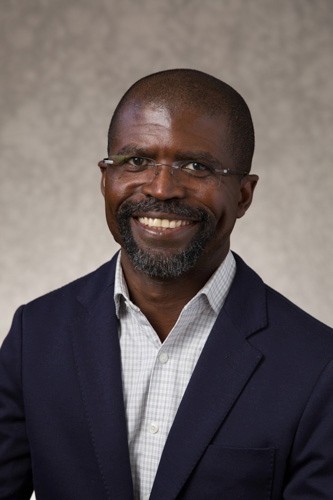GVSU political science professor to research in Belgium next summer

GVL / Courtesy – gvsu.edu
Oct 16, 2017
Jack Mangala, professor of political science at Grand Valley State University, recently received a scholarship from the Catholic University of Louvain (UCL), one of Belgium’s largest French-speaking universities, to research and present his findings under the Louvain Global College of Law Fellowship.
The Louvain Global College of Law Fellowship is designed to bring researchers together to conduct research at UCL and share their discoveries with the university community.
“The idea of this fellowship is to bring to Belgium, to the university, scholars from all over who have established themselves in a particular field,” Mangala said. “Those who are visiting the university under this fellowship share their research with the university community, give lectures, seminars and help to the students to make progress.”
The scholarship Mangala received is highly selective, as it is only awarded to up to three researchers per year. To apply, a researcher interested in studying under the fellowship submits an application to UCL, which reviews thousands of applicants and selects two or three with relevant, promising research objectives. Mangala was one of the three researchers from around the world to receive the scholarship.
Mangala’s research focus is the Turkish diaspora in Germany and the political debate arising from this Turkish presence. Turkish immigrants are settling in Europe in increasing numbers, with the Turkish diaspora in Europe amounting to more than 6 million people, according to The Economist. Mangala explained that Germany, in particular, is home to a lot of political tension in Europe.
“There is a big Turkish diaspora in Germany,” he said. “Some are German citizens and Turkish citizens, so they have political rights vis-á-vis Turkey and can vote in the election in Turkey. Can German government prevent some political activists to come to Germany and campaign? Can Germany say, ‘This politician from Turkey cannot come to Germany and try to gather the vote of the Turkish people living here?’ These questions don’t really have clear answers.”
Recent tension between the governments of Germany and Turkey has led to resistance from the German government to allow Turkish immigrants to have political involvement in Turkey. This resistance, however, can be seen on both sides.
Currently, Turkish President Recep Tayyip Erdogan is urging Turkish immigrants in Germany to thwart German attempts to assimilate them to their political agenda and continue to participate in Turkish politics in their home country. Mangala would like to explore the rights of Turkish immigrants to participate in Turkey’s elections, especially due to a conflict in the two countries’ political ideologies.
“Politics (are) becoming globalized, and the implications of this aren’t very clear,” Mangala said. “Can the government of the country where the immigrant lives say, ‘We don’t like your political orientation,’ or ‘We don’t like your political program,’ or ‘We don’t like you; we don’t want you here’?”
Mangala will be researching in Belgium for three months, from May through July 2018. When asked if he plans to implement his research here in the U.S. and at GVSU, he hinted at his plans to publish an article and give a presentation.






















